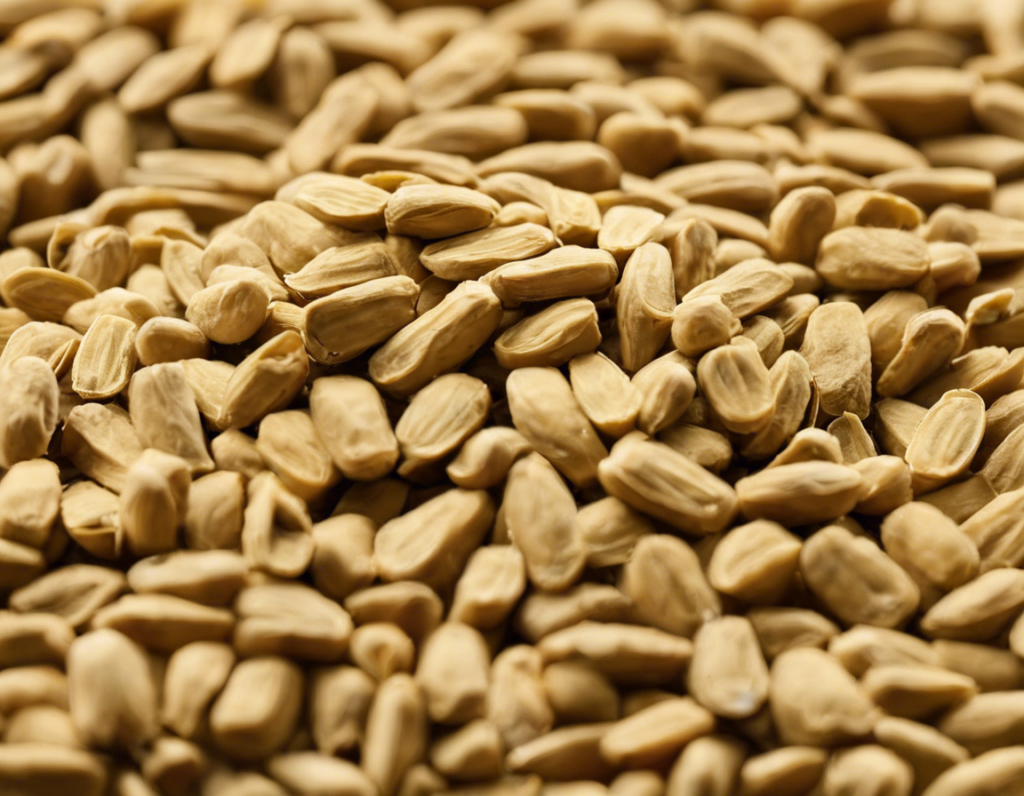Fenugreek, scientifically known as Trigonella foenum-graecum, is a plant that belongs to the Fabaceae family. It is commonly known as ‘methi’ in Hindi and is widely used in Indian cuisine for both its flavor and medicinal properties. In Hindi, ‘fenugreek’ translates to ‘methi dana’. Let’s delve deeper into the meaning, benefits, uses, and side effects of fenugreek.
What is Fenugreek?
Fenugreek is an annual herb that is native to the Mediterranean region, southern Europe, and western Asia. It has small, yellowish-white flowers and pods that contain small, golden-brown seeds. These seeds have a slightly bitter taste and a strong aroma. Fenugreek leaves are also used as an herb in cooking and are known for their distinct flavor.
Nutritional Profile of Fenugreek
Fenugreek is packed with nutrients and has been used for centuries in traditional medicine. Here are some essential nutrients found in fenugreek seeds:
– Proteins
– Fiber
– Iron
– Magnesium
– Vitamin B6
– Calcium
– Phosphorus
– Copper
Benefits of Fenugreek
1. Regulates Blood Sugar Levels
Fenugreek seeds are known to help in controlling blood sugar levels due to their high fiber content. They slow down the absorption of sugar and stimulate insulin production.
2. Aids in Digestion
Fenugreek seeds are rich in fiber, which aids in digestion and helps prevent constipation. They can also help in reducing heartburn and indigestion.
3. Improves Breast Milk Production
For lactating mothers, fenugreek is believed to help increase milk production. It is often consumed in the form of tea or capsules for this purpose.
4. Lowers Cholesterol
Studies have shown that fenugreek may help in reducing cholesterol levels, thus promoting heart health and lowering the risk of heart diseases.
5. Promotes Weight Loss
Fenugreek contains compounds that may help in appetite control and boosting metabolism, making it beneficial for weight management.
6. Anti-Inflammatory Properties
Fenugreek has anti-inflammatory properties that can help in alleviating symptoms of various inflammatory conditions like arthritis and asthma.
Uses of Fenugreek
- Culinary Purposes: Fenugreek seeds and leaves are commonly used in Indian cooking to add flavor and aroma to dishes like curries, dals, and pickles.
- Medicinal Purposes: Fenugreek is used in traditional medicine to treat various ailments like digestive issues, diabetes, inflammation, and skin conditions.
- Cosmetic Purposes: Fenugreek seed powder is used in hair masks and skincare products for its nourishing and moisturizing properties.
Side Effects of Fenugreek
While fenugreek is generally safe for most people when consumed in moderation, there are some potential side effects to be aware of:
– Allergic Reactions: Some individuals may be allergic to fenugreek, leading to symptoms like itching, swelling, and difficulty breathing.
– Digestive Issues: Consuming fenugreek in large amounts may cause gastrointestinal issues like diarrhea and bloating.
– Blood Sugar Levels: People with diabetes should monitor their blood sugar levels carefully when consuming fenugreek, as it may interact with diabetes medications.
Frequently Asked Questions (FAQs) about Fenugreek:
- Can fenugreek help in hair growth?
-
Fenugreek is believed to help in hair growth due to its high protein and nicotinic acid content, which may strengthen the hair shafts and promote growth.
-
How should I use fenugreek for breastfeeding?
-
Lactating mothers can consume fenugreek seeds in various forms like tea, capsules, or adding them to dishes to help increase milk production.
-
Is fenugreek safe during pregnancy?
-
While fenugreek is generally safe in moderate amounts, pregnant women should consult their healthcare provider before using it, as it may stimulate uterine contractions.
-
Can fenugreek seeds be consumed raw?
-
Fenugreek seeds are usually roasted and ground before consumption to reduce bitterness and enhance flavor. Raw seeds may be harder to digest.
-
Is fenugreek beneficial for men’s health?
- Fenugreek is believed to have benefits for men’s health, including improved libido, testosterone levels, and overall sexual health.
In conclusion, fenugreek, or ‘methi’, is a versatile herb with numerous health benefits and culinary uses. From regulating blood sugar levels to aiding digestion and promoting lactation, fenugreek has been a staple in traditional medicine for its therapeutic properties. However, it is essential to consume fenugreek in moderation and be aware of potential side effects, especially for individuals with specific health conditions. Incorporating fenugreek into your diet can be a flavorful and nutritious addition, offering a range of wellness benefits.
